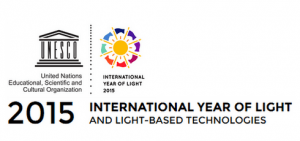International Year of Light: Ghana celebrates light for life
 On Tuesday March 17, 2015, H. E. the President of the Republic of Ghana John Dramani Mahama will officially launch the celebration of International Year of Light and Light-based Technologies 2015 at the Accra International Conference Centre.
On Tuesday March 17, 2015, H. E. the President of the Republic of Ghana John Dramani Mahama will officially launch the celebration of International Year of Light and Light-based Technologies 2015 at the Accra International Conference Centre.
In 2012, Professor Naana Jane Opoku-Agyemang, Minister for Education and Chairman of the Ghana National Commission for UNESCO, initiated a process at UNESCO Executive Board that eventually resulted in the proclamation of 2015 as the International Year of Light and Light-based Technologies by the United Nations at its 68th session. Ghana’s proposal at UNESCO won the support of the governments of Mexico, Russia Federation and New Zealand in sponsoring the Draft Resolution which was subsequently endorsed by the 37th General Conference of UNESCO.
Light, a form of energy, is central to life and all human endeavours. Light has played a leading role in the technological innovations that has characterized the present century and it will continue to do so in the foreseeable future. However, this central role of light and light-based technologies is not adequately recognized by the general public. As the importance of light is evident in everyday occurrences in nature, it is necessary to raise global awareness about how light-based technologies promote sustainable development and provide solutions to global challenges in energy, education, agriculture and health.
Ghana’s initiative brought on board global partnerships involving the Optical Societies, Scientific Unions, and Photonic giant industries around the world to harness the benefits of light some of which are as follows:
- Light-based technologies enable intensive studies on various techniques of plant breeding for improved crop yield and plant health.
- Fiber optics which is a light-based technology is the basis of the global internet infrastructure.
- Light is enormously important in the aviation industry for guiding aircrafts and screening of passengers using infra red rays to find temperatures as well as x-rays.
- In medicine, lasers have been used to diagnose and treat diseases, such as kidney stones and glaucoma. They have also been used in surgery without losing much blood.
- The storage of data on holographic CDs helps to archive images, music and videos.
- The use of sunlight remote sensing to monitor industrial pollutants helps to know the levels and thresholds in our set-up.
These examples give the diverse nature of the uses of light.
The International Year of Light and Light-based Technologies in 2015 provides a vehicle for promoting education and attracting young innovative minds to the study of Arts and science towards the development of a new generation of problem solvers to confront emerging challenges of our time that is paramount in the Ministry of Education post-2015 agenda.
In that regard, the IYL 2015 offers Ghana an opportunity to enter into partnerships with international institutions, societies and companies to assist in the adoption of portfolio approaches to invest in the opportunities available within photonics for knowledge transfer and as entrepreneurial strategy for protecting the emerging technologies.
Ghana’s involvement in the IYL 2015 has already found four identified priority areas that are paramount for the sustainable development of the country. These are:
- The upgrading of the Laser and Fiber Optics Centre at the University of Cape Coast into a full-fledged Institute for capacity-building in fiber optics technology;
- The establishment in the country of a sub-regional Laser Medical Application Laboratory (LMAL) to train medical practitioners to make use of the relevant laser technologies in the field of urology, ophthalmology, dentistry and general surgery.
- The establishment of a Solar Technology Research Centre to enhance the study and promotion of solar science and the use of alternative energy as well as,
- The establishment of a Museum of Light and Light-based Technologies as part of solutions to the post-2015 United Nations development agenda.
The Ghana National Commission for UNESCO together with the partners in this project is seeking partnerships and collaborations for the realization of the above projects.
For more information, please log on to www.light2015.unescoghana.org.
Source: Ghana National Commission for UNESCO
